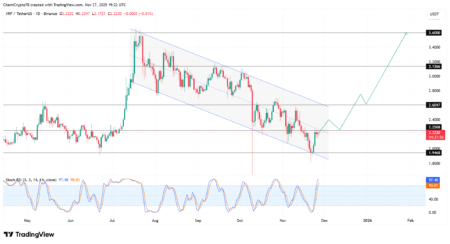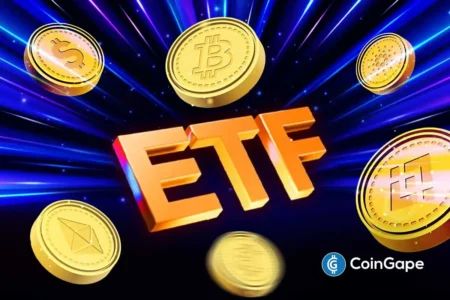Reliance Global Group’s Bold Move: Transitioning Entire Digital Asset Portfolio to Zcash
In an unprecedented move within the cryptocurrency sector, Nasdaq-listed Reliance Global Group has converted its entire digital asset portfolio to Zcash (ZEC). This strategic shift, confirmed through a recent press release, marks a pivotal change in the company’s approach to digital assets. By liquidating previous holdings—including major cryptocurrencies like Bitcoin, Ethereum, Cardano, and XRP—Reliance aims to harness the growth potential of ZEC. This decision comes amid experts projecting bullish trends for Zcash, further asserting its position in the digital asset landscape.
Why Reliance Global Group Was Drawn to Zcash
After a comprehensive review led by the firm’s Crypto Advisory Board Chairman, Blake Janover, Reliance concluded that Zcash would provide superior long-term growth for its treasury portfolio. The company emphasized a single-asset strategy revolving around ZEC, aligning with its long-term goals. CEO Ezra Beyman stated, “As we considered the rapidly evolving digital asset landscape, it became clear that Zcash’s privacy architecture and institutional flexibility align more closely with our vision than a diversified crypto portfolio.” This highlights a growing acknowledgment of the importance of privacy and institutional adaptability in cryptocurrency investments.
The Surge of Zcash: A 1,200% Increase
Zcash has seen remarkable momentum, rallying over 1,200% in just 90 days, even as larger cryptocurrencies experience declines. This upward trajectory not only amplifies investor interest but also sets a foundational expectation for the continued appreciation of ZEC’s value. Reliance’s strategic pivot, which came shortly after the company expanded its treasury to include XRP, symbolizes a clear trend towards embracing cryptocurrencies poised for significant growth and adaptability in ever-changing market conditions.
Experts Forecast Bullish Trends for ZEC
The optimistic outlook for Zcash is echoed by various analysts and traders. A crypto expert has identified a "bullish Gartley" pattern, targeting ZEC’s price near $850. Notably, popular trader TraderSZ expressed confidence in Zcash’s potential, stating that ZEC seems ready to "run the highs." Such bullish sentiments reflect a growing consensus in the trading community regarding Zcash’s future price movements. One particular analyst boldly asserted that Zcash could potentially surpass Bitcoin as a preferred peer-to-peer digital currency focused on privacy.
Influential Voices in the Crypto Sector
Several key figures in the cryptocurrency industry have shown a strong preference for ZEC. BitMEX co-founder Arthur Hayes revealed that Zcash is now his firm’s second-largest liquid position, trailing only Bitcoin. He has continuously maintained a positive outlook for ZEC, suggesting that the token could reach $1,000 under favorable market conditions. Additionally, OKX, a popular cryptocurrency exchange, is reportedly considering adding Zcash to its listings, indicating the coin’s growing relevance in the digital asset ecosystem.
Conclusion: The Future of Zcash and Its Market Position
Reliance Global Group’s strategic conversion to Zcash may signify more than just a shift in digital asset allocation; it represents a broader trend towards the prioritization of privacy and institutional flexibility in cryptocurrency investments. As predictions for ZEC’s price remain bullish and institutional interest grows, Zcash stands to emerge as a significant player in the digital asset arena. The move by Reliance could reinforce a paradigm shift, urging other firms to reconsider their investment strategies in an increasingly privy-centric crypto landscape.
In conclusion, the combination of Reliance’s confident transition, expert bullish forecasts, and Zcash’s impressive growth trajectory suggests a promising horizon for both the asset and its investors. As the cryptocurrency market continues to evolve, Zcash’s role could be more impactful than ever, positioning it as a viable alternative to more traditional cryptocurrencies.
















